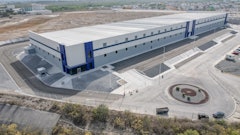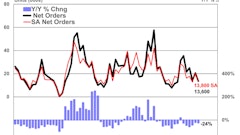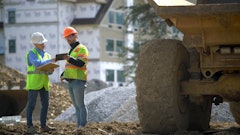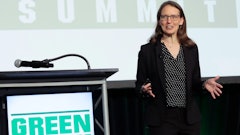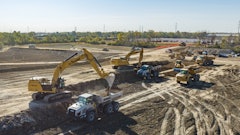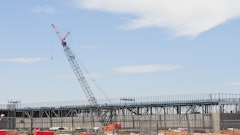RALEIGH, N.C. - The NRCI index for the fourth quarter 2009 is 47.7, a positive move from the third quarter 2009 reading of 44.8.
While the near-term outlook for most construction markets remains weak, healthcare, education and "other" show some relative growth potential next year. Since the inauguration of the NRCI in the autumn of 2007, panelists have been optimistic about markets coming back strong three years out. That optimism has dimmed since the second quarter, as nonresidential contractors realized the American Recovery and Reinvestment Act (ARRA) would not add much to their backlogs. At this time, for commercial and lodging markets, panelists believe it will take all of three years to make a comeback. One market that has remained relatively strong throughout the downturn is the miscellaneous mix of utility, infrastructure and sundry niche markets. Some contractors serve these markets on a regular basis, and others are beginning to seek them out because it appears that associated projects either have secure funding or are so necessary to the community that they must be built - recession or no recession.
For our "Current Issues" focus this quarter, we took a break from questions about financing and the effects of Stimulus funding, to examine our panelists' approach to strategic planning in the face of unprecedented uncertainty in the markets. We found that 62 percent of panelists still value long-range planning, and some credit those strategies for helping them prepare to thrive in the current downturn. For about 38 percent of panelists, looking beyond the next year was a stretch as they scramble to shore up declining backlogs and do what they can to keep their company in business until the markets make a comeback.
NRCI Fourth Quarter 2009 Highlights
- Overall Economy: Panelists are seeing significant improvement in the overall economy with the index for this category moving from 43.5 last quarter into positive growth territory at 52.1.
- Overall Economy Where Panelists Do Business: The sense that the overall economy is improving is also reflected in the improvement at the local and regional levels to move this component of the index from 37.1 last quarter to 44.5; a stressed indicator, but a great improvement on the first quarter results of 12.4.
- Panelists' Construction Business: Last year we noted how well panelists' business was performing relative to the downturn in the overall economy. Now we see the other side of that lag, and only a slight improvement over last quarter from 35.7 to 37.3. Indicators are still moving in a positive direction, but at this rate, it looks like it may take at least a couple more quarters to move into growth territory.
- Cost of Materials: The cost of construction materials is up slightly. Therefore, our index gauging the effect on contractors is down slightly from 63.8 to 59.4. Statistically, this is an improvement from a material supplier's point of view, but it is a sign that either supply has decreased or demand has increased slightly.
- Cost of Labor: The cost of labor is slightly lower than last month and appears to be stable from quarter to quarter at this time with the current component index at 53.1.
- Productivity: The productivity component index is slightly lower this quarter, moving from 62.4 to 61.0. This may be a sign that contractors are reaching the maximum efficiency that can be attained by working harder with fewer people.
- Delays and Cancellations: Delays and cancellations have remained stable since the first quarter of 2009, but this is not a good sign, as delays continue to affect 20 percent of projects, and cancellations are running at 10 percent, or more than three times what used to be considered "normal."
- Strategic Planning: While 62 percent of panelists still think long-range planning is both necessary and valuable to keep their firms on track, 38 percent saw little value for long-range planning at a time when they are struggling to find enough work to keep the doors open. Some are simply "hunkering down" and waiting for markets to return. Nearly 58 percent are focusing on their core businesses and stressing better execution, while others are looking at new markets (21 percent), new businesses or services (6.5 percent) or taking more radical steps to prepare the firm for new markets and customers (14.5 percent).
FMI is the largest provider of Management Consulting and Investment Banking to the worldwide construction industry.
Founded in 1953 by Dr. Emol A. Fails, FMI delivers innovative, customized solutions to contractors; architects and engineers; construction materials producers; manufacturers and suppliers of building materials and construction equipment; private owners, managers, and developers; residential builders; utility companies; surety companies and industry trade associations.
FMI creates value through enhanced performance of companies, teams and individuals and by mitigating risk. FMI is headquartered in Raleigh, N.C., and has offices in Denver, Phoenix and Tampa, Fla. For more information, visit www.fminet.com.




